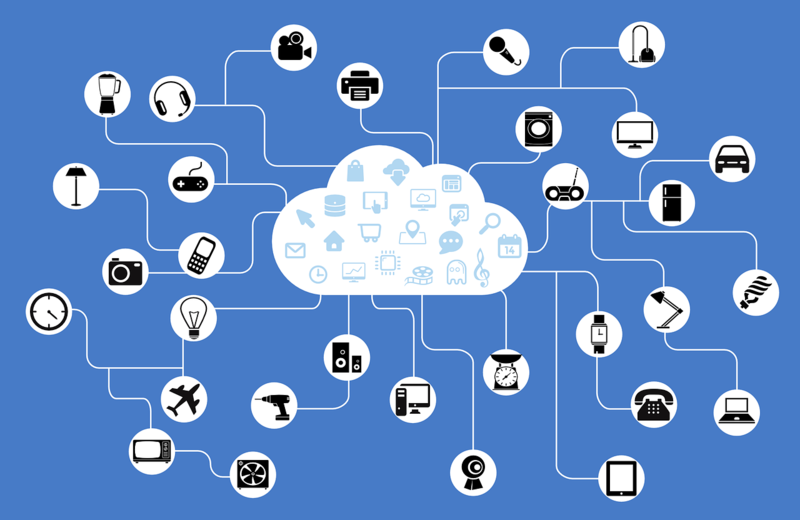You have probably wondered which internet providers are the best in the US.
Reliable and fast internet service has become a necessity for homes and businesses across America.
With an increasing number of providers and plans to choose from, picking the right internet service can be tricky.
In this comprehensive guide, we explore the 10 best internet providers in the US in 2023 based on speed, coverage, technology, customer satisfaction, and value.
Read Also: Top 10 Internet Providers in Australia 2023
Best Internet Providers in the US

The US internet market is dominated by a few big providers that operate nationally along with smaller regional and local ISPs.
Top operators like AT&T, Spectrum, Xfinity, Cox, and Optimum provide cable and fiber internet to a majority of American homes. Availability depends on your neighborhood infrastructure.
Internet speeds, monthly data caps, bundled plans, and contract terms vary across providers. You also have options for DSL internet, satellite internet, fixed wireless, and municipal broadband in certain areas.
Let’s look at the top 10 internet providers recommended for their fast, reliable service and good customer support.
1. Xfinity
- Coverage: 40 states
- Speeds: 25 – 2000 Mbps
- Data caps: 1TB monthly
- Key features: Xfinity xFi app, flexible data usage
Pros: Fast speeds, extensive coverage
Cons: Expensive, poor customer service reputation
Xfinity is the country’s largest cable internet provider leveraging Comcast’s extensive network. Offers gigabit speeds at select locations.
2. Spectrum
- Coverage: 45 states
- Speeds: 100 – 940 Mbps
- Data caps: No caps
- Key features: Free modem, no contracts
Pros: No data caps, fast speeds
Cons: Limited availability in rural areas
Spectrum is the second largest cable provider known for unlimited data plans and speeds up to 1Gbps in selected areas.
3. AT&T Internet
- Coverage: 21 states
- Speeds: 100 – 1000 Mbps
- Data caps: 1TB per month
- Key features: WiFi hotspot access, AT&T ActiveArmor
Pros: Fast fiber speeds, bundle discounts
Cons: Expensive standalone plans
AT&T offers widespread fiber and fixed wireless internet with speeds up to 1 Gbps in select metro regions.
4. Verizon Fios
- Coverage: 12 states
- Speeds: 100 – 940 Mbps
- Data caps: No data caps
- Key features: FMC bundles, Disney+ bundle deal
Pros: Symmetrical upload/download speeds
Cons: Limited availability mostly in the northeast
Verizon Fios provides speedy fiber optic internet but availability is limited to only a few states on the east coast.
5. Cox Internet
- Coverage: 18 states
- Speeds: 50 – 1000 Mbps
- Data caps: 1.25 TB monthly
- Key features: Panoramic WiFi, Cox app
Pros: Fast fiber speeds widely available
Cons: Relatively low data caps
Cox Communications offers fiber internet with gigabit speeds across 18 states in the southern and western US.
6. Optimum Internet
- Coverage: 12 states
- Speeds: 200 – 500 Mbps
- Data caps: 1TB monthly
- Key features: WiFi extender, Optimum app
Pros: Affordable plans, fast speeds
Cons: Slow DVR boxes, limited availability
Optimum internet is available in 12 states on the East Coast providing high-speed cable internet up to 500 Mbps.
Read Also: How To Connect Shark Robot To WiFi
7. EarthLink
- Coverage: 34 states
- Speeds: 50 – 1000 Mbps
- Data caps: No caps
- Key features: Unlimited data, email security
Pros: Usage-based pricing model
Cons: Limited gigabit availability
One of the first ISPs in the US, EarthLink operates in 34 states providing uncapped cable and fiber internet.
8. Mediacom Internet
- Coverage: 22 states
- Speeds: 60 – 1 Gbps
- Data caps: No data caps
- Key features: WiFi 360 security, internet security
Pros: High speeds, no data limits
Cons: Poor customer satisfaction
Mediacom offers high-speed cable internet with a developing fiber network available in parts of the Midwest and Southeast.
9. Viasat Internet
- Coverage: All 50 states
- Speeds: 12 – 100 Mbps
- Data caps: 40 to 100 GB monthly
- Key features: Satellite internet, unlimited off-peak data
- Pros: Available nationwide, unlimited off-peak data
- Cons: Speed and data limits
Viasat provides satellite internet service across the whole US even in remote areas though speeds are not very high.
10. T-Mobile Home Internet
- Coverage: 130+ million households
- Speeds: 33 – 182 Mbps
- Data caps: No data caps
- Key features: 5G network, mobile app
Pros: Fast speeds, unlimited data
Cons: Dependent on 5G coverage
T-Mobile leverages its wide 5G network to provide home internet service with impressive speeds and no data caps.
What to Consider When Choosing an Internet Provider
Here are some key factors to consider when choosing internet service in your area:
- Internet technology – cable, DSL, fiber, fixed wireless, satellite, etc.
- Speeds offered and maximum speeds supported by the ISP’s network
- Monthly data limits or unlimited data options
- Bundled plans, promotional deals, and contract terms
- Customer satisfaction and support reliability
- Availability and coverage in your neighborhood
Analyze your internet usage requirements, budget, and location to pick the right provider for your needs.
Read Also: How to Activate and Check Glo YouTube Night Bundle
To Sum Up
Reliable and fast internet service is now central to how we work, learn, and get entertained. Top providers like Xfinity, Spectrum, Cox, and Optimum offer a technology mix of cable and fiber internet across large parts of America. Newer entrants like T-Mobile are also expanding access using 5G.
Consider your speed needs, usage preferences, budget, and provider coverage in your locality to choose the ideal internet plan.
The right provider ensures you remain seamlessly connected for work, life, and play.
RELATED POST
How to Check 9Mobile Airtime Balance and Data Plan Balance (2023)
How to Retrieve NIN Number Without Phone Number Updated 2023/2024
Airtel Data Plan: How to buy, YouTube Night Plan, Social Bundles, and Router bundles (2023)
How to Transfer Airtime From Glo to Glo 2023/2024
How to Setup Airtel Internet Configuration (APN Setting) 2024
